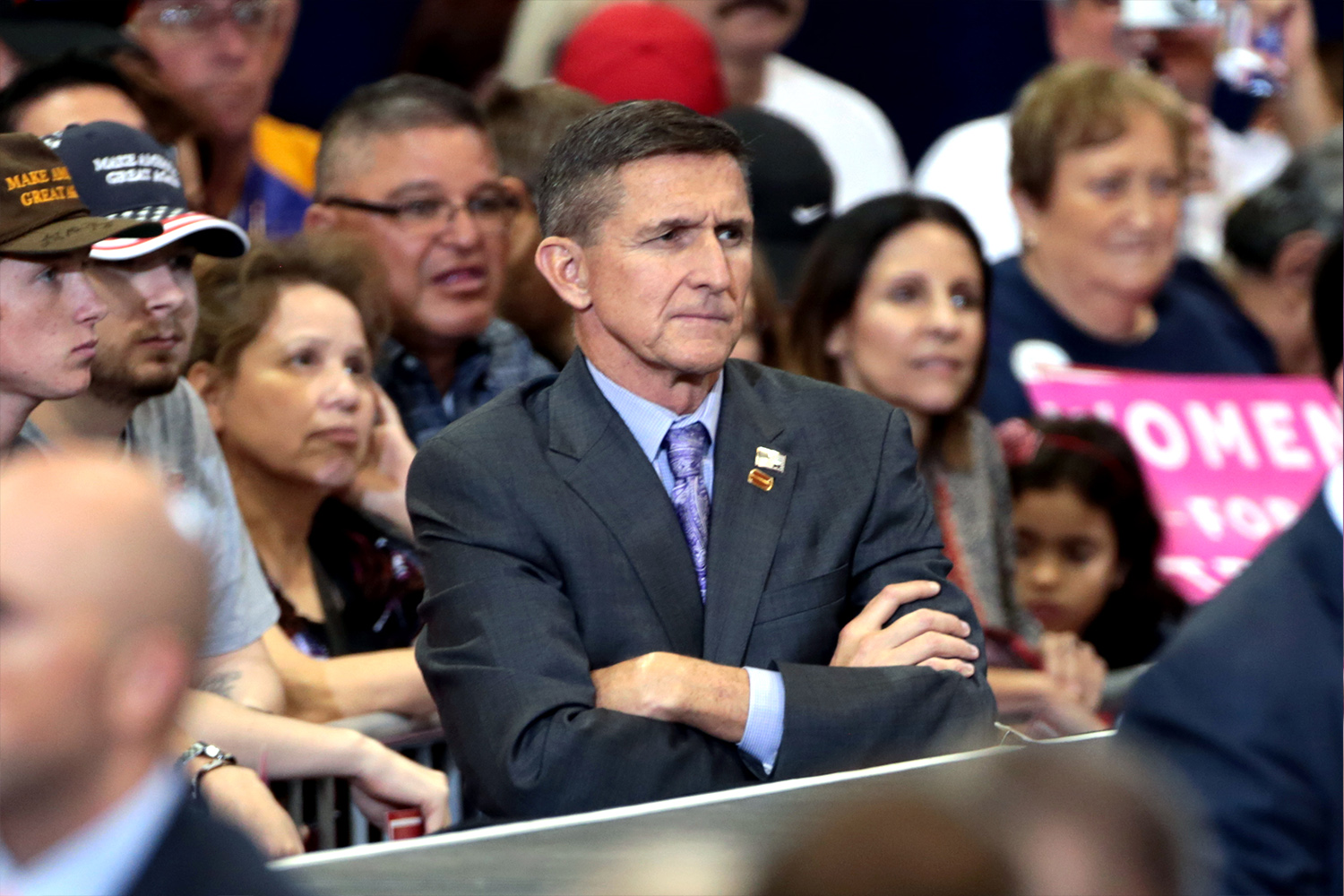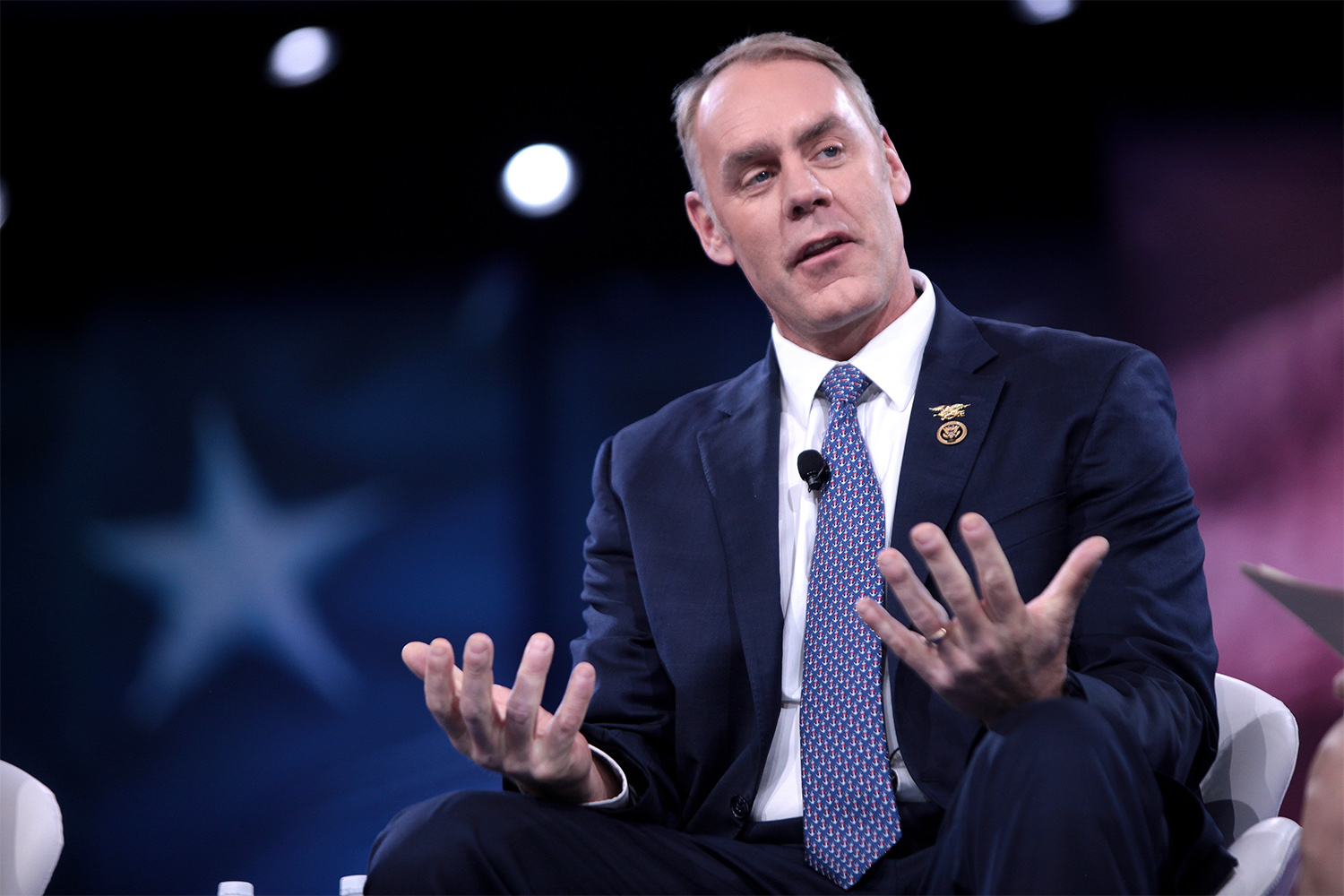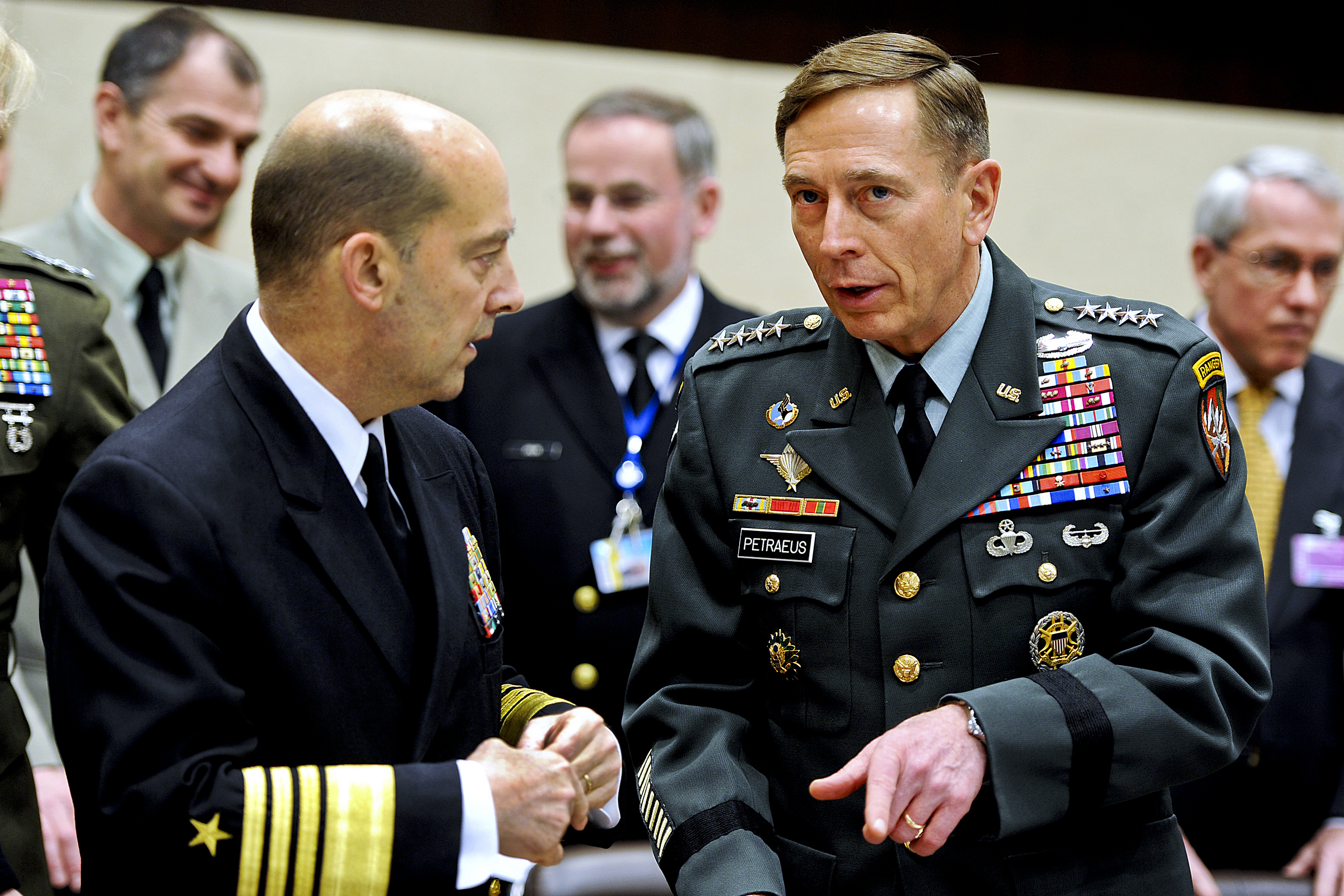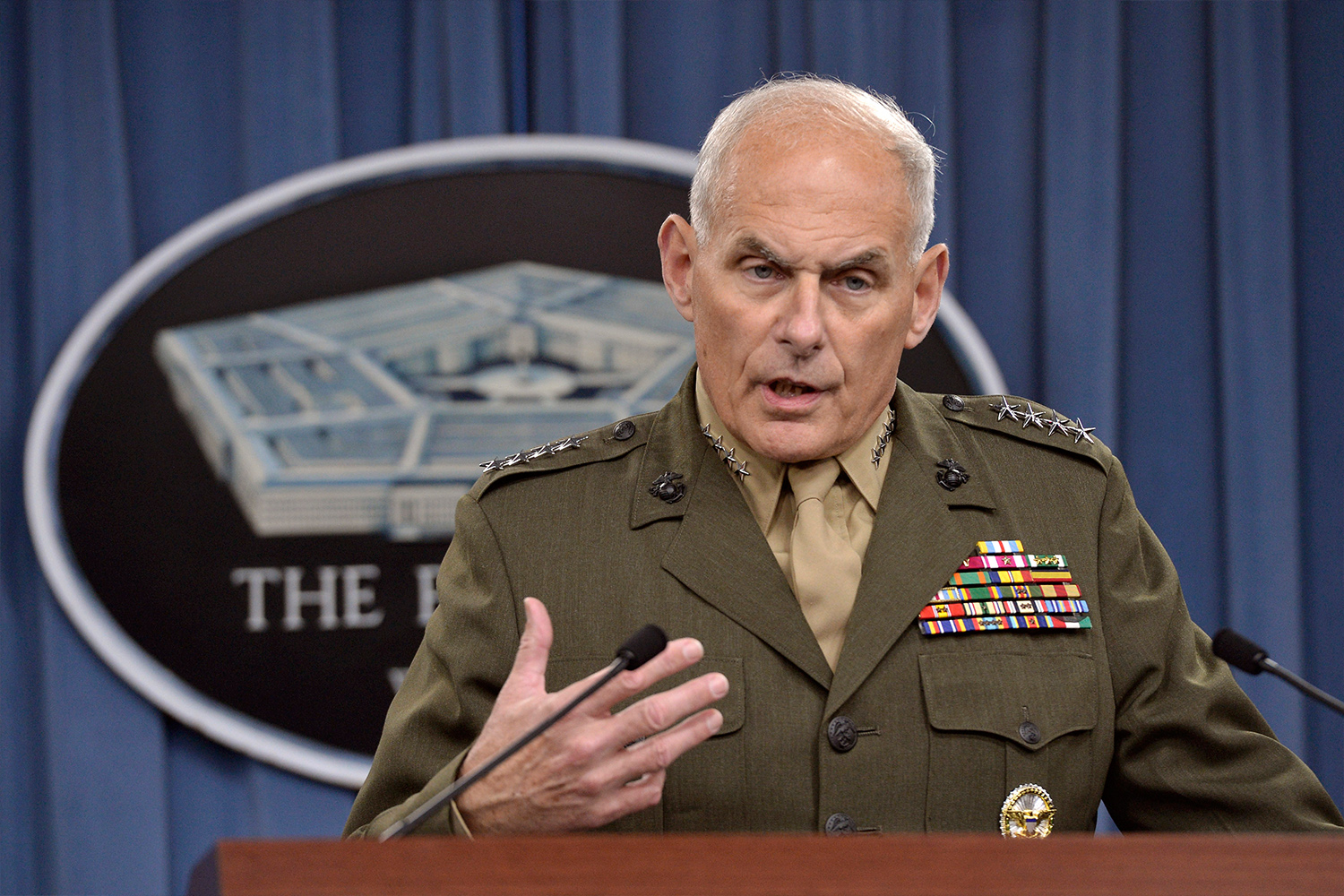Never in American history has a cabinet-elect been so stacked with ex-warriors as Donald Trump’s, and some question the wisdom of relying so much on the military perspective in a country that so values civilian control over its political institutions.
Three top posts in Trump’s cabinet have gone to former military brass: Defense to retired marine general James Mattis, Homeland Security to retired marine general John Kelly, and national security to retired army lieutenant general Michael Flynn.

US Secretary of Defense: Gen. James Mattis (Right) and Chairman of the Joint Chiefs of Staff Gen. Martin E. Dempsey. [D. Myles Cullen]

National Security Advisor: Lt. Gen Michael Flynn at a campaign rally for then-Republican Presidential nominee Donald Trump, in October 2016. [Gage Skidmore]

US Interior Secretary Ryan Zinke speaking at the 2016 Conservative Political Action Conference (CPAC) in Washington, D.C. [Gage Skidmore]
Retired army general David Petraeus and former admiral James Stavridis were considered for secretary of state, and Admiral Mike Rogers, still serving, was up for intelligence under Trump, who has no military experience.

Both considered for US Secretary of State, U.S. Army Gen. David H. Petraeus (right) speaks with Admiral James G. Stavridis at the NATO headquarters in Brussels, Belgium. [Defense Department photo by Cherie Cullen]

Considered for US Director of National Intelligence: Admiral Rogers speaking to a group of Sailors at the Center for Information Dominance in January 2012.
In a cabinet garnering the bulk of attention for its wealth, the military element has attracted scant attention. Recent estimates put the billionaire Trump’s picks in control of a combined fortune worth $14.5 billion, more than the bottom third of U.S. households combined. That’s 43 million American families.
Ironically, the last cabinet so stacked with elites belonged to Dwight Eisenhower, who ascended to the presidency in 1952 based primarily on his accomplishments as commander of Allied forces in Europe during the Second World War. Eisenhower’s picks included nine millionaires, while Trump has at least four billionaires and numerous millionaires. It’s the richest cabinet in American history.
Some Democrats and even a few Republicans have expressed concern at what they see as the militarization of a civilian institution. To some, civilian control of the military–a sacred tenet of American democracy–has been surrendered to Mattis, who requires a congressional waiver to take his post because he hasn’t been out of the service for the required seven years.
As if to put an exclamation mark on it all, on Dec. 20 Trump appointed Vinnie Viola, a billionaire and ex-soldier, to the post of army secretary–not a cabinet job but an important one for the former West Pointer, nonetheless.
With Republicans in control of both houses of Congress, it’s unlikely the opposition will amount to anything. Proponents say the presence of so many ex-military officers, combat veterans all, in positions of influence will bring chops, pragmatism and gravitas to a cabinet not noted for its political experience.
“Old soldiers are not martial automatons, responding reflexively to civilian commands,” Mark Thompson wrote in Time. “By the time an officer wears four stars, he or she has spent years dealing with major strategic issues.
“Such experience–especially in national-security matters–should prove invaluable to a president with little such background. They are far more likely to act as a brake on hare-brained notions–from Trump or anyone else–than a gas pedal.”
The nominees themselves don’t appear bent on militarizing U.S. policy. Officers, said Kelly, spend their careers willing to sacrifice their lives to defend country and Constitution. Civilian control, he noted, is rooted in the president as commander in chief and the Congress, which controls spending.
For his part, Mattis even rejects the moniker General, saying: “Please call me Jim. I was once a general, but it was long ago and I’ve happily rejoined the human race.”
Advertisement
























